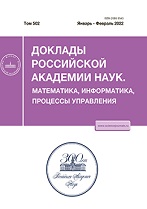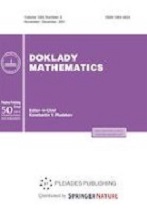|
This article is cited in 1 scientific paper (total in 1 paper)
RESULTS OF ARTIFICIAL INTELLIGENCE RESEARCH CENTERS
Trusted artificial intelligence: challenges and promising solutions
D. Yu. Turdakovabc, A. I. Avetisyanabcd, K. V. Arkhipenkoa, A. V. Antsiferovaa, D. S. Vatolinb, S. S. Volkova, A. V. Gasnikovad, D. A. Devyatkinbe, M. D. Drobyshevskiyad, A. P. Kovalenkoa, M. I. Krivonosova, N. V. Lukashevichb, V. A. Malykhd, S. I. Nikolenkoc, I. V. Oseledetsfg, A. I. Perminovab, I. V. Sochenkovfe, M. M. Tihomirovb, A. N. Fedotovb, M. Yu. Khachayh
a Ivannikov Institute for System Programming, Russian Academy of Sciences, Moscow, Russia
b Lomonosov Moscow State University
c National Research University Higher School of Economics, Moscow, Russia
d Moscow Institute of Physics and Technology (National Research University), Dolgoprudny, Moscow Region
e Institute for Systems Analysis, Federal Research Center "Computer Science and Control", Russian Academy of Sciences, Moscow, Russia
f Skolkovo Institute of Science and Technology, Moscow, Russia
g Artificial Intelligence Research Institute, Moscow
h Krasovskii Institute of Mathematics and Mechanics, Ural Branch, Russian Academy of Sciences, Yekaterinburg, Russia
Abstract:
Wide applications of artificial intelligence technologies have led to new threats that cannot be effectively addressed using current tools for secure software development. To meet the challenge, the Research Center for Trusted Artificial Intelligence based on the Institute for Systems Analysis of the Russian Academy of Sciences was founded within the federal project “Artificial Intelligence” in 2021. Its objectives are the creation of scientific and technological basis for building trust in AI technologies. This paper discusses the risks and threats of applying artificial intelligence technologies, and describes the research directions and intermediate results produced at the Research Center for Trusted Artificial Intelligence.
Keywords:
trusted artificial intelligence, attacks on machine learning, explainable artificial intelligence, trusted intelligent systems.
Received: 28.10.2022
Revised: 29.10.2022
Accepted: 01.11.2022
Citation:
D. Yu. Turdakov, A. I. Avetisyan, K. V. Arkhipenko, A. V. Antsiferova, D. S. Vatolin, S. S. Volkov, A. V. Gasnikov, D. A. Devyatkin, M. D. Drobyshevskiy, A. P. Kovalenko, M. I. Krivonosov, N. V. Lukashevich, V. A. Malykh, S. I. Nikolenko, I. V. Oseledets, A. I. Perminov, I. V. Sochenkov, M. M. Tihomirov, A. N. Fedotov, M. Yu. Khachay, “Trusted artificial intelligence: challenges and promising solutions”, Dokl. RAN. Math. Inf. Proc. Upr., 508 (2022), 13–18; Dokl. Math., 106:suppl. 1 (2022), S9–S13
Linking options:
https://www.mathnet.ru/eng/danma332 https://www.mathnet.ru/eng/danma/v508/p13
|


| Statistics & downloads: |
| Abstract page: | 210 | | References: | 52 |
|



 Contact us:
Contact us: Terms of Use
Terms of Use
 Registration to the website
Registration to the website Logotypes
Logotypes